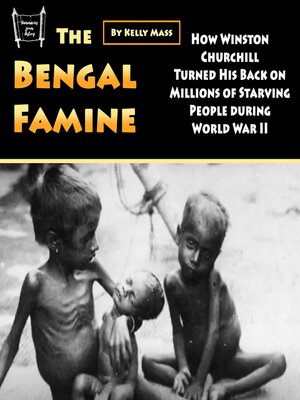The Bengal Famine
audiobook (Unabridged) ∣ How Winston Churchill Turned His Back on Millions of Starving People during World War II
By Kelly Mass

Sign up to save your library
With an OverDrive account, you can save your favorite libraries for at-a-glance information about availability. Find out more about OverDrive accounts.
Find this title in Libby, the library reading app by OverDrive.



Search for a digital library with this title
Title found at these libraries:
| Library Name | Distance |
|---|---|
| Loading... |
This audiobook is narrated by a digital voice.
History is often penned by those who emerge victorious, and it's no exception that British and American historians have documented the narrative of India during the colonial era. While Hitler's atrocities in World War II are widely acknowledged, the magnitude of suffering endured by India under British rule is often overlooked.
Lasting over two centuries, the British Raj in India witnessed numerous devastating famines, resulting in an estimated thirty million deaths.
The British administration's approach to India was consistently harsh, with the country enduring a series of famines during their rule. Prior to British control, India's indigenous rulers swiftly responded to famine threats, employing various strategies to mitigate their impact. However, under British governance, famines became more frequent and severe, exacerbated by delayed monsoons and exploitative colonial policies that prioritized British interests over the welfare of the Indian population.
One of the most catastrophic famines occurred in 1943, known as the Bengal Famine, where over 3.5 million people perished and survivors resorted to consuming grass and even resorting to cannibalism. The Bengal Famine was exacerbated by the Japanese invasion of Burma during World War II, leading to a severe food shortage in British India's Bengal Province.
Despite early warnings and signs of food scarcity, the authorities downplayed the situation, dismissing reports of shortages as politically motivated agitation. This negligence exacerbated the suffering of millions of people, highlighting the callousness of British colonial rule in India.







